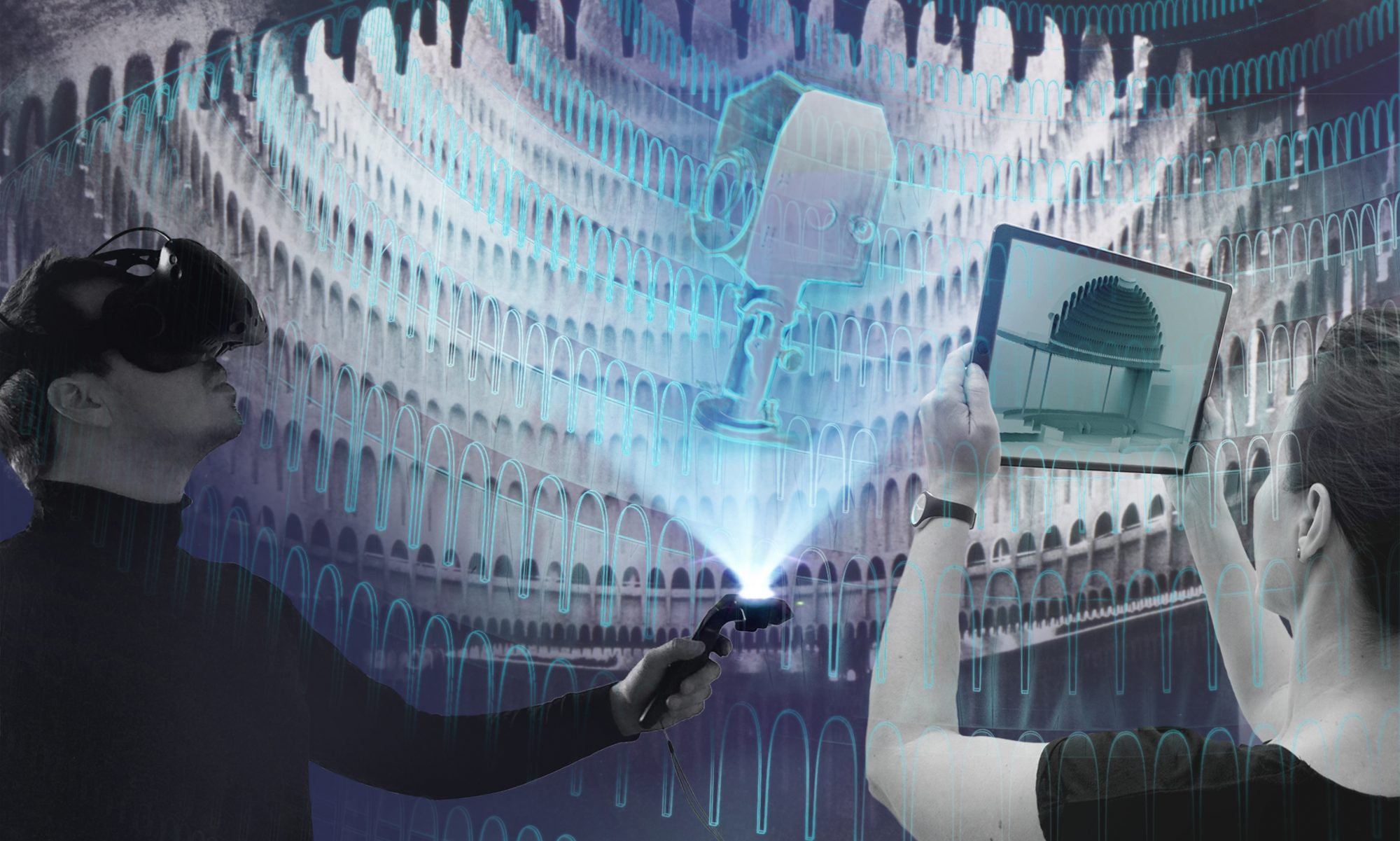The entry into new digital worlds is a big step with many obstacles. New software and new ways of working require an intensive examination and consume a lot of time. Time that is not always available.Inexperience and resistance even within the group of colleagues do not make it easy to give one’s curiosity enough room for experimentation. That is why the gates to digital worlds often remain closed. Working with virtual reality has so far only been tackled by a few theatres. Immersive media have also only recently found their way into the training of theatre and event technicians.
On this occasion, the digital.DTHG team has developed the workshop series “How to go Virtual?” as part of the research project “Im/material Theatre Spaces”. The aim is to provide easy access to working with virtual realities at theatre and event locations with their technical directors, designers and freelance stage designers. Room for experimentation and a sustainable knowledge base for the diverse use of VR in the theatre should be created. The workshop consists of a location-independent phase of (data) preparation and several on-site sessions over a period of 4 to 6 weeks. In addition to theoretical aspects such as explanations of terms and technical details, a great deal of emphasis will be placed on practical application: both trying out existing applications and programs as well as the concrete implementation of your own VR usage scenarios and workflows. The technology is conveyed in its manifold possibilities as a visualization, design, construction and communication medium.

Project partners and pioneers from the very beginning are the colleagues of the tjg. theater junge generation (Dresden’s children’s and youth theater): there, under the direction of VR coach Vincent Kaufmann (digital.DTHG), a first initial workshop took place in June 2020. Technical director Lutz Hofmann, designer Robert Rott and chief stage & costume designer Grit Dora von Zeschau are currently immersing themselves in the digital 3D worlds with the rented equipment to discuss possible adaptations of the open-air production “Das doppelte Lottchen” – virtually of course! “We would not refrain from the real construction test including the important personal contact, but for the planning phase we hope to have an effective, contemporary means of communication”.

In the workshop series “How to go Virtual” we will address the following questions and contents. These will be individually coordinated with the theatres according to their current needs and level of knowledge:
- First contact with the technology / fascination VR / trying out different systems
- Getting to know technical basics: What different VR systems are available, how do they work and what are the requirements (e.g. for the Oculus Go, Windows Mixed Reality glasses, Oculus Quest)
- Fields of application of VR in the theatre: for sketching ideas, as construction software, for the preparation and visualisation of details, as a discussion platform and versatile means of communication – e.g. around the virtual building trial
- Programmes and working methods: How can workflows be developed and which programs can be used? From Tilt Brush to Sketchbox to VR Sketch. You can get an overview here.
- Individual use at the individual theatre: Which workflows are best suited for your own house, how can they be integrated easily and quickly into your daily work routine?
- Opportunities and risks of VR in the theatre (including costs, time, data preparation, staff resources, know-how, further training, sustainability, maintenance, hygiene)
The enthusiasm of the Dresden colleagues was enormous: “Only by experiencing and trying out VR on my own was I able to recognize the spatial effect and potential of VR”. Lutz Hofmann also underlines the great potential of the technology for collaborative work between artists and technicians in the planning phase of a production: “When meeting in virtual space, everyone involved finds easy-to-use tools for presenting their design or technical approaches, which allows effective translation and verification of thoughts beyond model making and pure drawing programs”.
We are confident that more theatres will follow this example and open the gates to digital worlds. If you are interested in a workshop and want to dive into virtual worlds, please contact us.
Contact and further information: Vincent Kaufmann digital@dthg.de
Photos: Tabea Hörnlein


